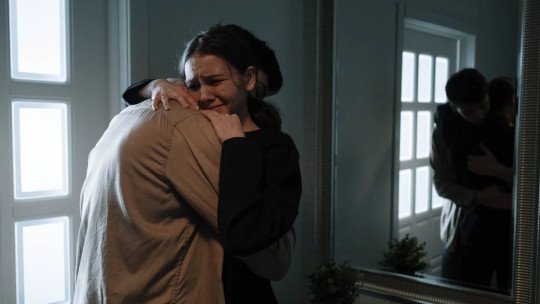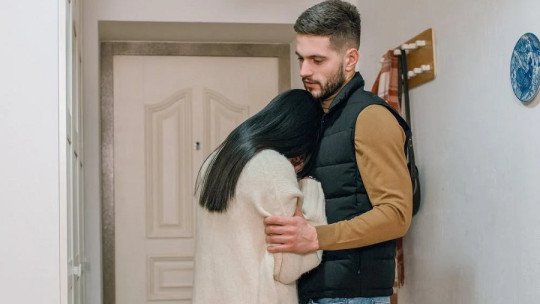Ending a relationship is, in many ways, one of the most emotionally destabilizing experiences. The routine changes, the loneliness weighs, and a cascade of unanswered questions settles in our minds. “Why can’t I move on?”, “Why does it hurt so much?” These are difficult questions to ask out loud, but in the silence they resonate strongly.
Throughout this article we will see key aspects about breakups, those elements that can make us feel trapped in grief, and I will propose questions so that you begin to reflect on your own process. Because, When a relationship ends, sometimes pain and nostalgia envelop us in an emotional labyrinth.. It is not just the absence of the other person, but the feeling that we lose a part of ourselves. We find ourselves navigating a mixture of happy memories, expectations and desires that, when not fulfilled, leave us with a feeling of emptiness.
Idealization and nostalgia: Why is it so difficult for us to let go of what was?
It’s funny how, once the relationship ends, it seems that all those moments of joy and connection resurface with more strength. Our mind, almost without wanting to, selects the best moments, those moments in which we feel deeply connected. However, this idealization plays tricks on us, because we get stuck in an ideal version of the relationship that may never have been completely real.
Do you find it difficult to remember the moments of conflict or the less satisfactory aspects? Is it possible that you are viewing the relationship through a lens of nostalgia that blurs the shadows?
In therapy, we explore those complex emotions, the ones that make you continue to cling to that idealized image, among other things. We work on dismantling those expectations and understanding what aspects of yourself you are looking for in that nostalgia.
Fear of loneliness: Is it the breakup or the fear of being alone?
Sometimes, the real challenge after a breakup is not so much the absence of a partner, but rather facing loneliness, the idea that the person who accompanied us will no longer be there. We are scared by the idea of “starting from scratch”, of not having someone to share our daily lives with.
What is more difficult for you: the loss of the person or the idea of not having anyone by your side? How do you get along with yourself in moments of loneliness?
These are questions that in therapy help us understand if there is something deeper behind that pain. Maybe the process is less about “letting someone go” and more about learning to reconnect with yourself, about making your company a place where you find peace. Exploring the fear of loneliness is key to healing completely.
Shattered Expectations: Grief for the “we” that never was
When a relationship ends, we not only lose a person, but we say goodbye to a whole world of expectations and dreams. We dream of a future together, and when that vision is shattered, we feel that not only a relationship has disappeared, but a part of ourselves.
Do you find yourself trapped in mourning what could have been? How difficult is it to let go of that image of a life together that you had created?
In therapeutic work, we understand that the wound is not only the absence of the person, but the rupture of all those expectations. Together, we analyzed what part of those dreams you can still build for yourself and what the other person’s role was in them. It is a process to free yourself from the idealized vision and understand that you can reconstruct those dreams from a new perspective.
Closing the breakup cycle: grief and self-pity
Healing after a breakup is like going through grief: there are moments of sadness, anger, and hopelessness. However, to truly close the loop, we need to give ourselves permission to feel all that pain, instead of running away from it. Self-compassion, in this process, is essential.
Do you allow yourself to grieve, or do you try to minimize it? Are you hard on yourself because of what you feel, as if it were a weakness?
In therapy, you will learn to be compassionate with yourself, to accept that you are grieving and that your emotions are valid. By allowing yourself to live this process with patience and without reproaches, you will find the peace and strength to move forward. This is a safe space where you can explore grief without fear of being judged, understanding that every step counts in your healing.
The support you need in this process
Getting over a breakup is an intimate and personal journey, but you don’t have to go through it alone. In SAFE Psychology We are experts in relationships and we can accompany you in this healing process, whether in person in Madrid or in online sessions. We know that it is possible to feel well and enjoy yourself again, and we are here to help you take that step towards the emotional well-being that you so deserve.









